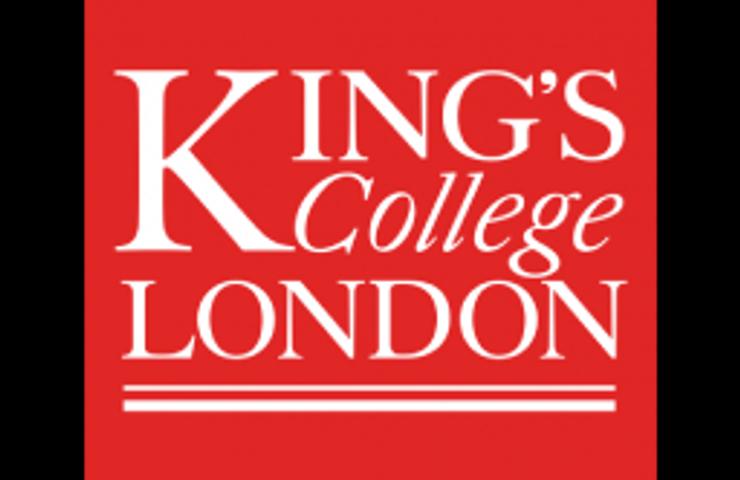
Bachelor in Philosophy, Politics, Law and Economics (PPLE)
- Home
- Studies
- Undergraduate Degrees
- Bachelor In Philosophy, Politics, Law And Economics (pple)
A UNIQUE BACHELOR IN PHILOSOPHY, POLITICS, LAW AND ECONOMICS
The study plan for the Bachelor in Philosophy, Politics, Law and Economics at IE University has been designed with the prestigious academic experience at its core, our academic faculty’s expert knowledge and research in each area, and the connections between IE University and the professional world.
At the heart of this program, you will find a combination of in-depth knowledge, research and professional experience that aims to provide a complete toolkit of skills to face current world challenges.
Through our hands-on teaching methodology, students from the Bachelor in Philosophy, Politics, Law and Economics will find the ideal balance between what they study throughout their degree and the projects they complete that are based on real-world scenarios. This will aid them in developing profiles that can adapt to new and emerging trends.

BACHELOR IN PHILOSOPHY, POLITICS, LAW AND ECONOMICS STUDY PLAN
LEARN MORE ABOUT OUR BACHELOR IN PHILOSOPHY, POLITICS, LAW AND ECONOMICS

FIRST YEAR
Your first year will be a broad introduction to the fundamental concepts of philosophy and political, legal and economic systems. Throughout the year, you will explore the concepts at the root of these four areas while considering how they interact with each other to shape societies, governments and organizations. In class, you will take a hands-on approach to solve real-world problems while strengthening your writing and public speaking skills.
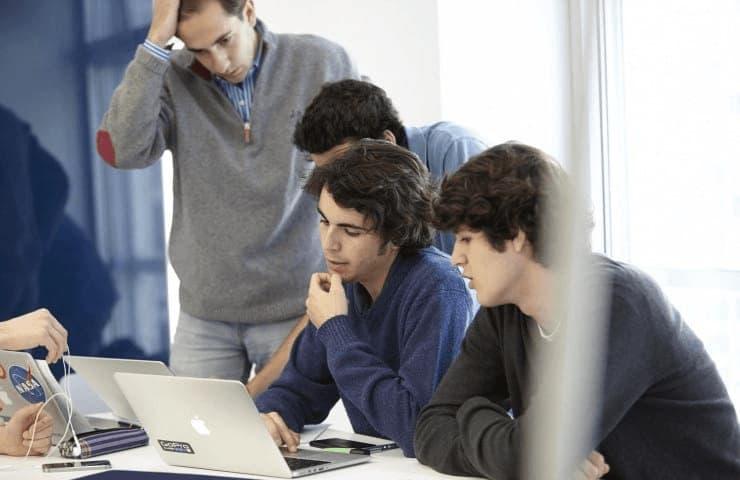
SECOND YEAR
The second year introduces students to more advanced courses in the four pillars of the program. You will develop a deeper understanding of politics, law and economics through a philosophical perspective, allowing you to make more complex observations regarding how government systems and global organizations operate.
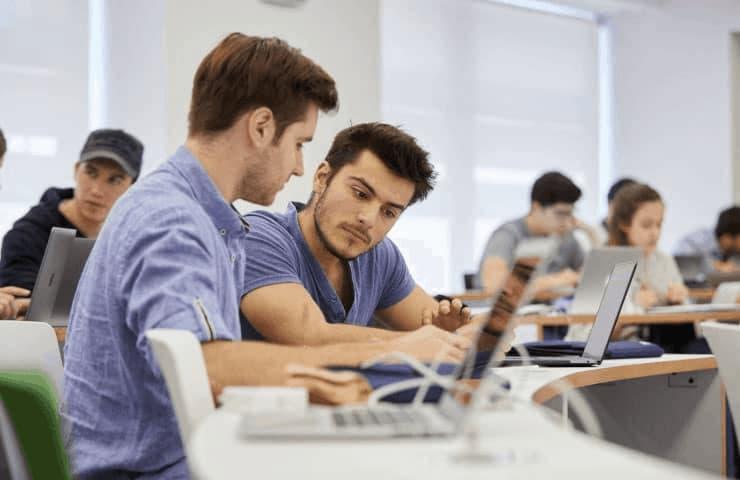
THIRD YEAR
As you move into your third year in the program, you will start to develop a strategic vision that integrates your philosophical, political, legal and economic knowledge.
Third-year students look at human behavior and cognition in order to consider social structures within human society, as well as different cultures and organizations. You will also study legal and ethical issues while developing a philosophical mindset. Throughout the year, you will acquire a strategic and mathematical understanding of conflict and cooperation, which may be used to assess decision-making techniques and enhance your critical and analytical skills.
At this point, you will have the option to transition to our Dual Degree Bachelor of Philosophy, Politics, Law and Economics + Bachelor of Laws program, by adding the LL.B. (Bachelor of Laws) degree to your study plan. Our specially designed academic curriculum combines courses from both degrees to meet the graduation requirements in a total of five years.

FOURTH YEAR
In the fourth year, you have another opportunity to select the track you want to follow. You can choose to broaden your knowledge in one of the four pillars: Politics, Philosophy, Law or Economics; or you will also have a greater say in tailoring your classes to your needs and preferences, allowing you to truly follow your passion.
Fourth-year students must develop a Final Degree Project, which will be developed throughout the year, before presenting it to a panel of academic judges.
In the fourth year, there are multiple options available for your studies. You can choose whether to attest your expertise by pursuing elective courses in one of our four tracks —Politics, Philosophy, Law or Economics, going on exchange to one of our partner universities, and/or completing an internship. To qualify for graduation, using your aptitudes in independent, academic research, you will produce a written PPLE Final Degree Project and defend it in front of a faculty panel.
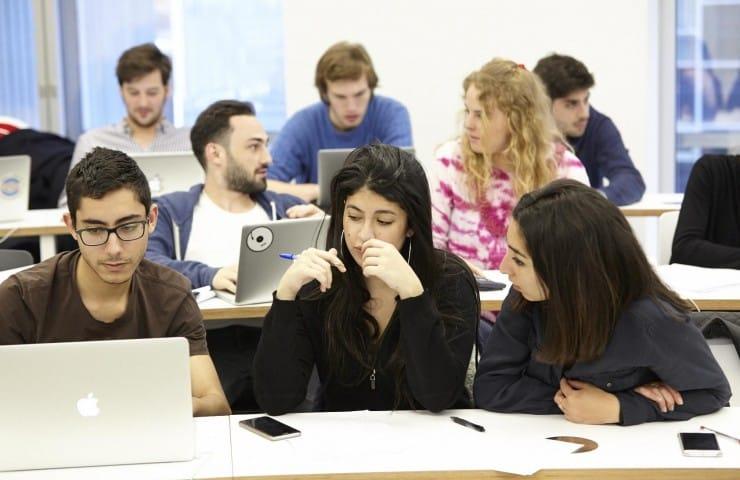
FIFTH YEAR
After completing the four mandatory years of the PPLE, we offer students the opportunity to take part in an additional year to obtain a dual degree.
Students have the option to focus on laws to obtain a Dual Degree Bachelor of Philosophy, Politics, Law and Economics + Bachelor of Laws. Students that take this option must submit an additional final project at the end of the fifth year.
This year only pertains to those that chose to join the dual degree option. You will devote this extra year to culminating your knowledge and competencies in the field of law by completing a series of mandatory courses and an additional Bachelor of Laws Final Degree Project.
BACHELOR IN PHILOSOPHY, POLITICS, LAW AND ECONOMICS tracks
Creating and personalizing your own professional path is an essential part of your PPLE learning journey here at IE University. For this purpose, by the end of the third year, you can choose to delve deeper into the areas of philosophy, politics, law or economics, or continue in the general program. Through these diplomas, you will specialize in one of the areas, creating a stronger professional profile in the selected field. You will learn from industry experts, top academics and experienced professionals who will help you prepare to tackle today’s challenges in each of these areas.
Students complete their track in their fourth year, but you can always start exploring your preferred area from the very first semester by participating in specific activities, seminars, personalized career guidance, mentoring programs and much more.
We encourage you to select your own pathway and tailor your experience to your personality, passions and future professional career. You will be assigned a personal advisor to guide you through this process and help you make informed decisions every step of the way.
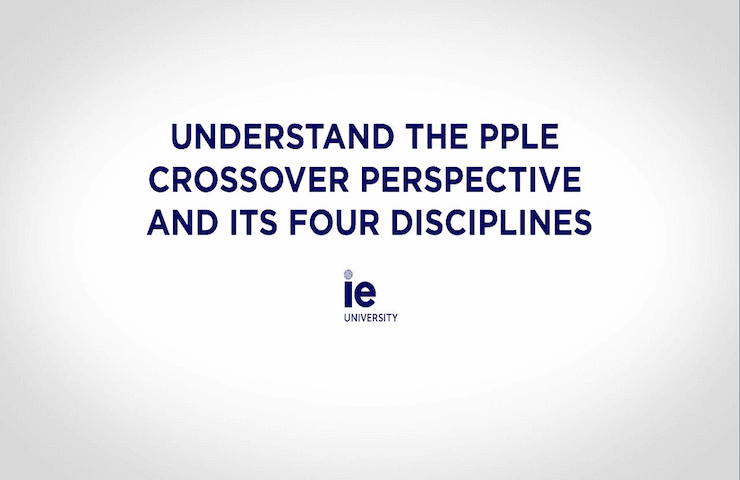

PPLE & track IN POLITICS
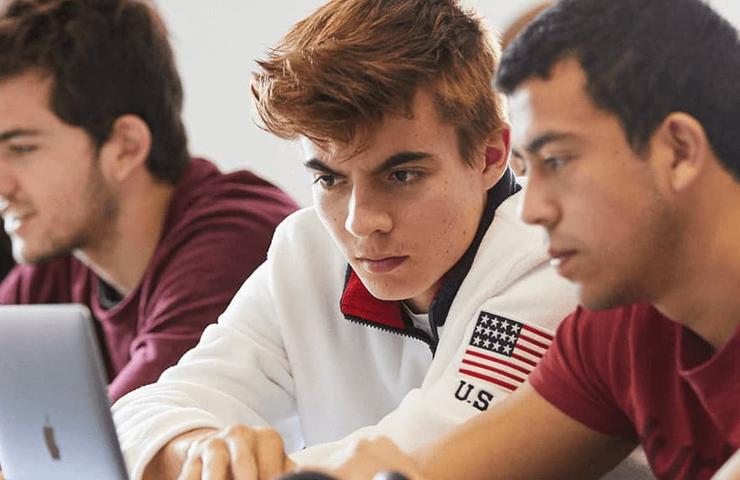
BECOME AN AGENT OF CHANGE
By studying this track, you will deepen your understanding of what it takes to develop a career in the international public sphere, exploring complex areas such as international politics, global development and multinational organizations. This diploma will cover a wide range of challenges that the world is facing, with a special focus on area studies, foreign policy and political theory.
Customize your program by opting for popular courses on subjects such as geopolitics, foreign policy, project evaluation and assessment, public diplomacy and nation branding, new technologies, GovTech, and area studies, among others.
You will acquire the skills to spearhead global progress by developing skills such as advocacy, negotiation, persuasion and leadership. Throughout the Bachelor in Philosophy, Politics, Law & Economics & the Diploma in Politics you will gain an understanding of the public sphere and become an agent of change.

PPLE & track IN ECONOMICS
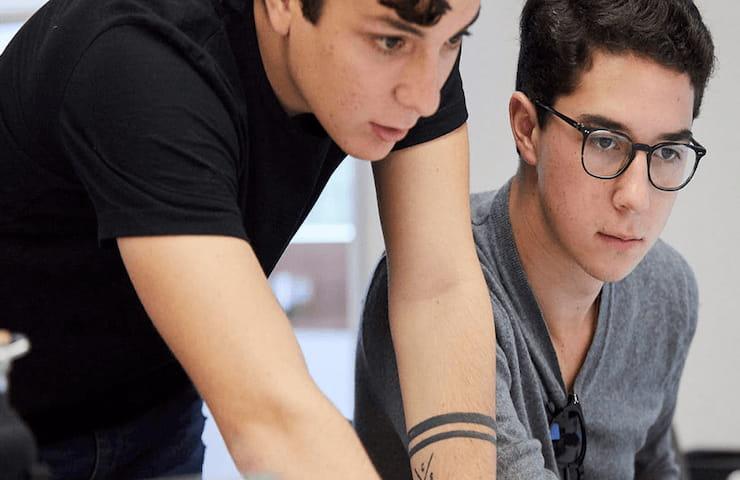
BECOME AN INTERNATIONAL ECONOMICS EXPERT
This track will provide you with the skills necessary to understand the underlying principles of economics in a complex global environment. You’ll have the opportunity to examine economic policy, country risk analysis, and strategic economic sectors, all built on the strong multidisciplinary ground that you acquired during the first three years of the program.
You will study top courses in digital economics, behavioral economics, advanced econometrics, economic nudging and policy design, and machine learning and analytics for economists, among others.
You will develop sought-after skills such as evidence-driven decision-making, collective problem-solving and data visualization.
Use your analytical skills to drive economic growth and efficiency. With this track, you will be ready to pursue a career as an economic consultant, a country or sector analyst, or an economic advisor, for example. By undertaking the Bachelor in Philosophy, Politics, Law and Economics with the Diploma in Economics, you will acquire the necessary tools to analyze global economic problems, evaluate the impact of policies and, with a data-driven approach, make proposals to stimulate economic growth.

PPLE & track IN PHILOSOPHY
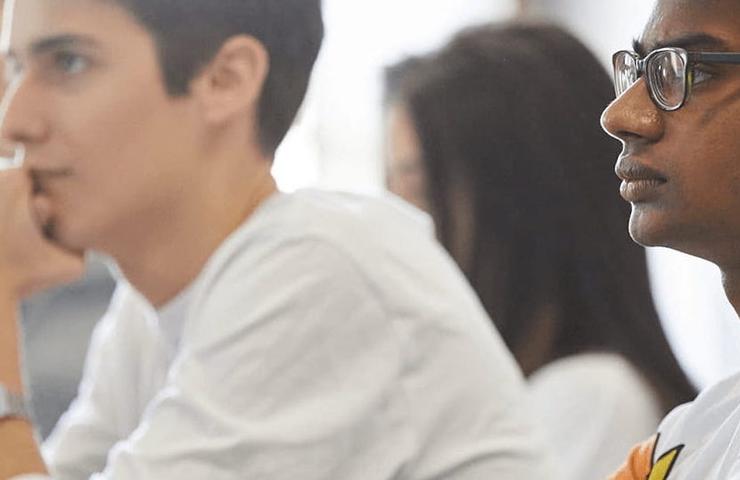
BECOME A PROBLEM SOLVER IN A FAST-CHANGING WORLD
This track builds on the rigorous intellectual training characteristic of the PPLE. Apply your analytical skills and abstract reasoning to address the fundamental questions that arise in other disciplines such as business, computer sciences, politics, law and economics, to name a few.
By learning how to adopt logical thinking and present new hypotheses and solutions to problems, you’ll be ready to pursue a career in the different fields represented in the program such as policymaking, strategic consultancy, law, economic strategy, and academia.
By studying both the philosophy of language and of mathematics, students will be well-equipped to tackle the digital future. You can access courses such as applied ethics or moral philosophy so that you’ll be able to analyze current issues such as privacy, artificial intelligence, identity, and more.

PPLE & track ON GLOBAL LAW
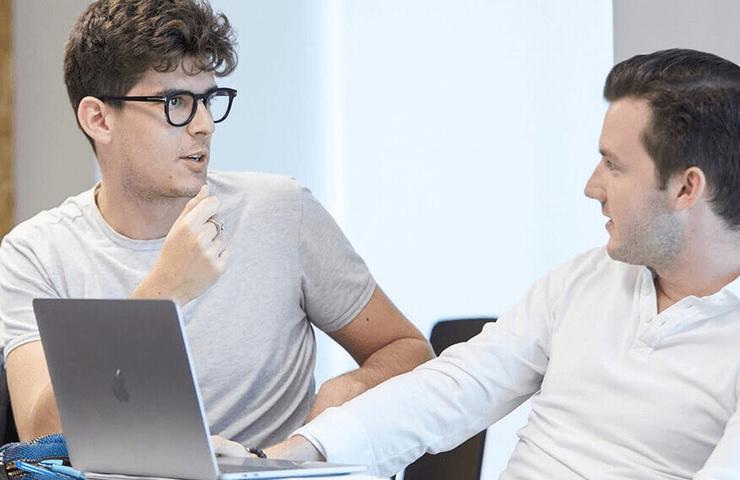
IMPACT SOCIETY BY PROMOTING JUSTICE AND EQUALITY
This track amplifies the legal knowledge you’ll have acquired during the first three years of the program.The courses within this diploma follow a comparative law methodology in which students learn about global concepts by comparing different legal systems. Comparative law fosters creative minds, as students are encouraged to challenge the solutions provided by various legal systems and offer alternative answers. In a global legal context that is constantly evolving, a creative mind—equipped with solid legal knowledge from various jurisdictions—will provide students with a competitive advantage.
You’ll participate in the most prestigious moot court competitions and study exciting courses in the areas of digital law, business law and human rights. Additionally, you’ll develop desirable skills such as persuasion, advocacy and creative legal thinking.
Make a positive impact on society by promoting the rule of law. Thanks to the Bachelor in Philosophy, Politics, Law & Economics with the Diploma in Global Law, you’ll be equipped with the knowledge and skills necessary to become a leading professional with sharp legal skills to work across all borders.
UNDERSTANDING PPLE PROFESSIONAL PATHWAYS
A program designed with you in mind, the Bachelor in Philosophy, Politics, Law and Economics offers you the chance to decide. Throughout the course you will gain the skills necessary to confidently navigate the four pillars of the program with practical, hands-on learning via impactful courses.
But as we know you have your own particular interests, you’ll also be given the opportunity to dive into challenges, set by real-world companies, to explore your possible career paths throughout your program journey. Each of these challenges is created to help you gain firsthand insights about the sector you could be working in allowing you to make a clear, informed decision on your future.
The six tracks available to explore are Consulting, Impact Investment, Economic Analysis, GDPR, Think Tanks and Sustainable Management, lead by mentor companies such as GAWA Capital and Oxford Analytica in six sessions per challenge.
PERSONALIZE YOUR ACADEMIC CAREER WITH YOUR FINAL PROJECT
IE University’s Bachelor in Philosophy, Politics, Law and Economics students recently completed their final project in collaboration with asset management company Gawa Capital. Agustín Vitorica, founder and CEO of the company, speaks to us about his experience of working with the students on this project.
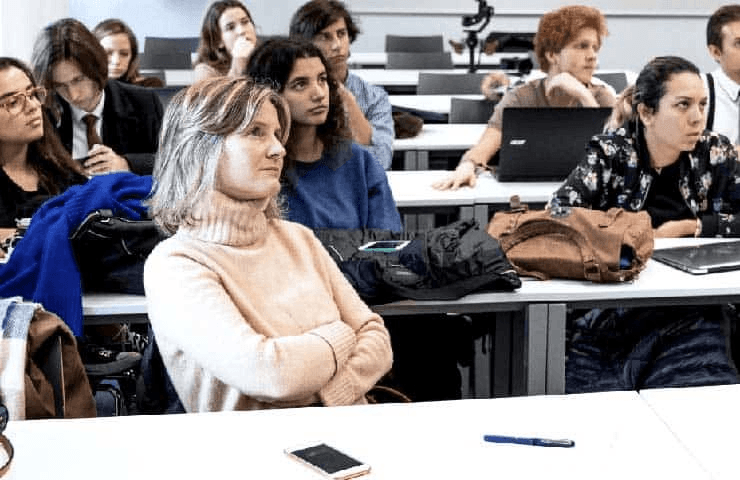
Dean - IE Law School
"It is a project that we offer to all students to participate in and the Gawa projects consists in developing and doing an economic, political, and legal analysis for a social impact fund. In particular, this year, they chose to do it for a specific cooperative in Colombia."
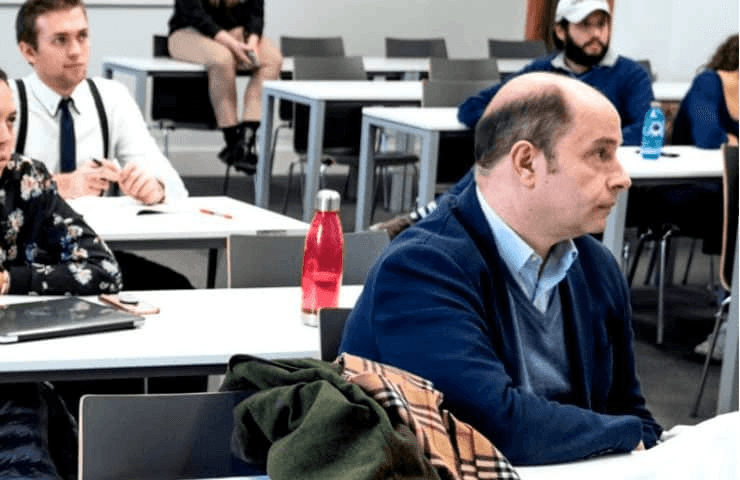
AGUSTÍN VITORICA
FOUNDER AND CO-CEO OF GAWA CAPITAL
"The project about agricultural cooperatives in Colombia is going to be very useful for us because it provides background information about the importance and social impact of the cooperative sector, and specifically, they’ve been able to identify one specific investment opportunity for us, which is Colanta."
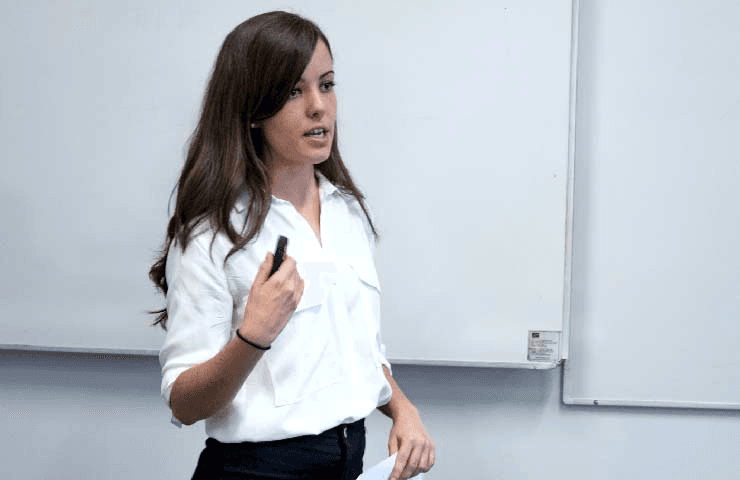
ELENA YUSTRES
STUDENT
"This experience it's super useful for our future professional life, since that’s what we’re going to be doing: analyzing opportunities and identifying the things that matter most to us, and sort of analyzing the context and the principal elements of how to make investment decisions."
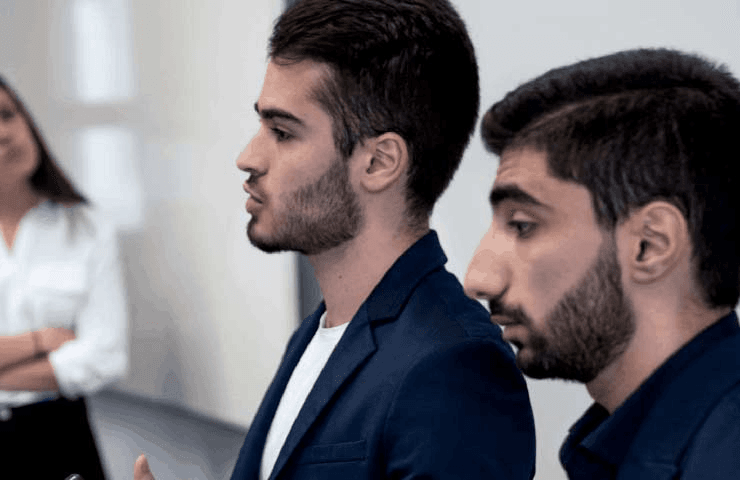
RICARDO ÁNGEL
STUDENT
"We are providing Gawa with a real investment opportunity that they can use if they decide to do so, in order for their investors to gain an edge and a profit out of the investment, and for them to make a real social impact through the most important agricultural cooperative in Colombia."
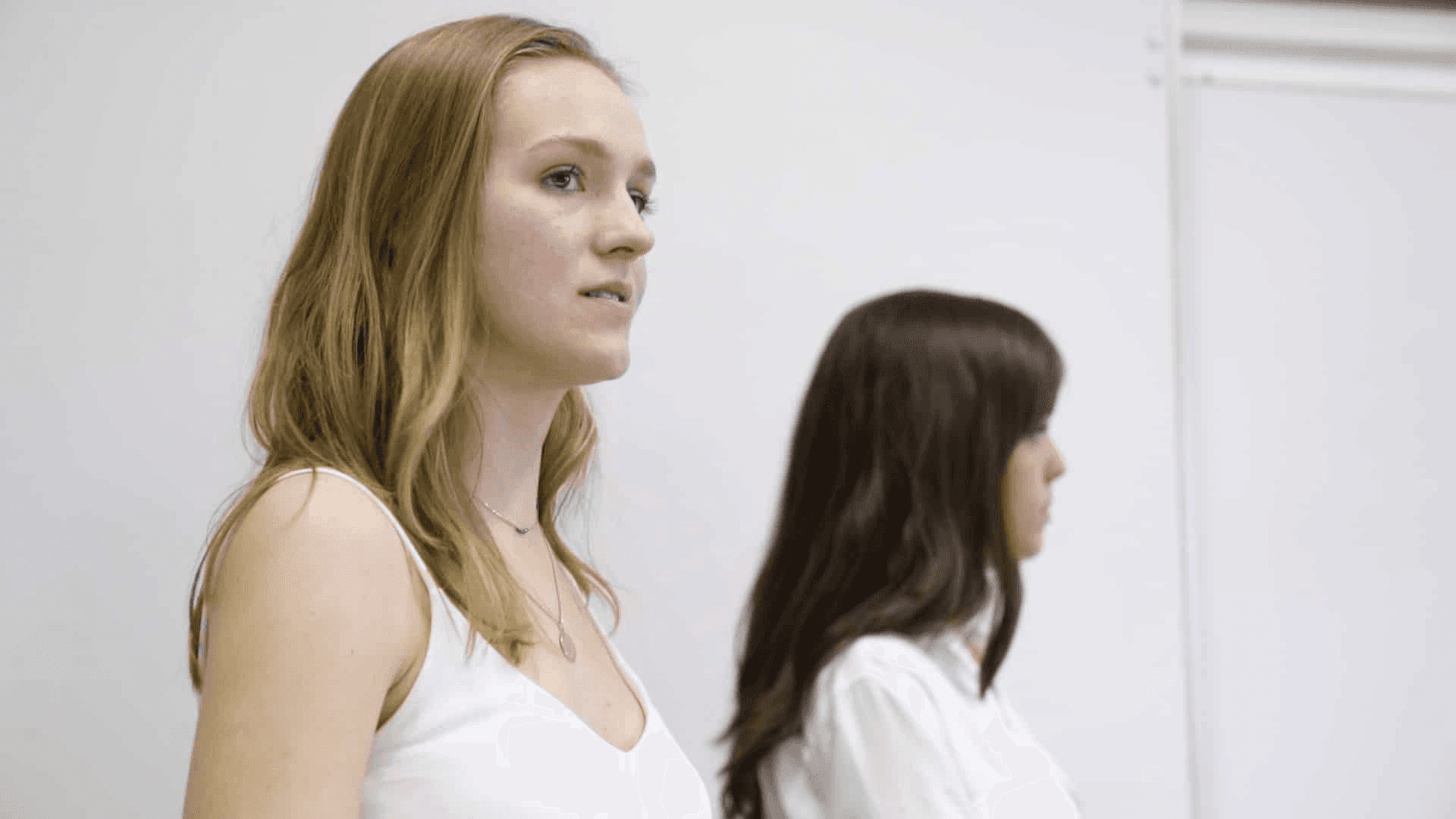
LEA MATHIES
STUDENT
"The project was a great connection of the areas of our degree because doing our research, we had to combine the three to understand the way the cooperatives work in Colombia and the impact of social investment."
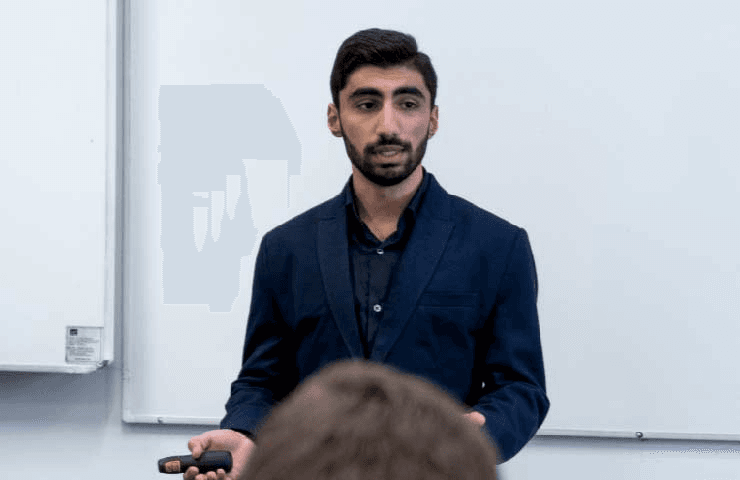
ALEN TADEVOSYAN
STUDENT
"This project was specifically designed for the students of PPLE, the Bachelor in Philosophy, Politics, Law, & Economics. It entailed cooperation with Gawa Capital, which is an asset management company operating in and located in Madrid."

THE EDEN FUND STUDENT PROJECT
The EDEN Fund is the first student-created and student-run investment fund in Spain. It replicates the inner workings of a real fund—like any fund on Wall Street—with the objective of educating passionate students through one simple method: giving them responsibility.
EDEN is the brainchild of students Carlo Masera and Santiago Quintana, who got their inspiration from their experience in the IE Investment Club.
THE IEU – KING’S COLLEGE LONDON ACADEMIC PATH
The IEU – King’s College London Academic Path is a student exchange agreement that allows students from both institutions, IE University and King’s College London, to study at each other’s campuses during the last year of their respective programs. This is a unique opportunity that will allow you to expand your network, and gain a more diverse knowledge and educational experience to stand out in a competitive market landscape.
Learning a new language can open up a world of new opportunities
IE University considers multiple language acquisition to be a key element of its educational model, leading to success in both work and study.
The Language Center at IEU is proud to offer students the possibility to study a wide range of languages, including French, German, Portuguese, Chinese, Arabic, Spanish, and English. With such a large variety of options, our students are able to personalize their academic path to meet their future career plans and objectives.

The Language Center at IEU
The Language Center helps students develop their multilingual communicative skills to help them flourish in the international labor market.
THE DUAL DEGREES OF IE UNIVERSITY
Develop a multidisciplinary profile and specialize in two distinct, yet connected fields, by combining another bachelor degree with your studies in Philosophy, Politics, Law & Economics.

DUAL DEGREE IN PHILOSOPHY, POLITICS, LAW & ECONOMICS + DATA & BUSINESS ANALYTICS
This program encourages students to understand social environments and make data-driven decisions to impact societies and organizations. Students will gain strong analytical skills by experimenting with the latest data technologies and tools applied to the philosophical, political, legal, and economic fields.
COMPETENCES
Basic competences
GENERAL COMPETENCES
- Apply abstract reasoning and analytical competencies to understand economic, political, social and legal processes to formulate solutions to complex problems in multidisciplinary environments.
- Understand and interpret social dynamics to advance value proposals for society through institutions and companies.
PROGRAM-SPECIFIC COMPETENCES
- Understand the social, political, economic and legal context in light of the broad concept of philosophy, framing social analysis within complex ideas of humanity and society.
- Effectively apply concepts, theories and theoretical paradigms provided by the multidisciplinary scope of the program using associated analysis methodologies and tools.
- Identify the numerous factors and relevant indicators present in social or organizational problems with precision and depth using data collection, processing and quantitative and qualitative interpretation.
- Know and understand the intervention policies in legal, political, economic or organizational matters in order to support institutional growth and/or social improvement, in line with the political-legal, social and economic-business environment of the context.
- Apply philosophical analysis and critical thinking to moral, political and social issues and recognize manifestations of philosophical debate in moral and political practices.
- Define economic and social issues through the use of quantitative tools—mathematics, statistics and econometrics—and propose solutions, as well as systems for their evaluation, control and monitoring.
- Understand, interpret and evaluate the legal conditions—legislation, regulation, institutional actors—involved in political, economic and social matters.
- Understand the main elements of the national, European and international legal systems and be capable of interpreting sources and fundamental legal concepts.
- Manage the legal language and terminology of the different branches of the law with skill and precision to draft legal documents in an orderly and understandable manner .
- Identify and design effective economic policies according to the national context.
- Anticipate trends and macroeconomic results for countries and regions.
- Analyze and interpret public and/or institutional policies considering the social environment to weigh up their internal coherence viability and social and economic profitability.
- Integrate legal, economic and political knowledge and analysis with the humanist philosophy.
TRANSVERSAL COMPETENCES
- Work with interdisciplinary and multicultural teams with the aim of achieving common goals in a diverse, international context.
- Identify the main cultural identity traits that characterize today’s world by understanding the main contemporary ideological trends.
- Manage unforeseen situations by being able to adapt to organizational changes.
APPLICABLE REGULATIONS OF THE PROGRAM
Read our blog
FREQUENTLY ASKED QUESTIONS
Is philosophy a hard degree?
Yes, philosophy can be a challenging degree as it involves abstract thinking, rigorous analysis, and complex philosophical concepts that require critical reasoning and careful interpretation.
What do you learn in philosophy politics and economics?
In Philosophy, Politics, and Economics (PPE), you learn about ethical theories, political ideologies, economic systems, policy analysis, decision-making, social justice, international relations, and the intersection of philosophy, politics, and economics in shaping society.
What subjects do you need for PPE?
For PPE (Philosophy, Politics, and Economics), you typically need a combination of subjects such as philosophy, political science, economics, mathematics, statistics, history, and social sciences.
How hard is PPE?
PPE (Philosophy, Politics, and Economics) can be challenging due to its interdisciplinary nature and the complexity of the subjects involved. However, the level of difficulty can vary depending on individual strengths and interests.
